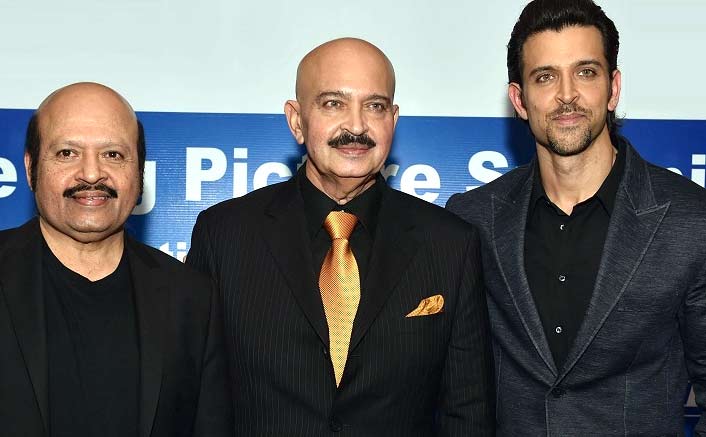Born on 24th May 1955, Rajesh Roshan was attracted towards music at a very tender age wherein his father, Roshan used to ask him for inputs during several music composition seating. In his childhood, the music composer was a fan of the albums composed by Shankar – Jaikishan and SD Burman, however over the years realized the beauty of music composed by his father, Roshan. After loosing his father at a very tender age, he learnt the basics of music from Ustad Faiyaz Ahmed Khan.
To polish the skills, his mother, Ira Roshan after speaking to renowned lyricist, Anand Bakshi got him to train with Laxmikanth – Pyarelal.

After training under them for nearly 5 years, Rajesh Roshan made his debut as a music director in 1974 with Kuwara Baap. Though the music of the film was appreciated, it was Julie which got him leave a mark in the industry, which was otherwise dominated R.D.Burman, Kayanji – Anandji and Laxmikanth – Pyarelal. Julie was followed by successful albums like Swami, Priyatama, Doosara Aadmi, Inkaar, Khatta Meetha, Desh Pardesh, Mr. Natwarlal, Yaarana, Khuddhar, Do Aur Do Paanch, and Kaam Chor, which made him one of the most successful music directors of the film industry. Every singer wanted to sing to the tunes of Rajesh Roshan back then, which speaks about the success that he witnessed in a span of 8 years. After dominating the music industry for 8 years, Rajesh Roshan did face a low wherein the Bappi Lehiri’s disco music had become the talk of the town. The period from 1982 to 1989 is considered the worst phase of Hindi Cinema Music, and even Rajesh Roshan had to face a burn for this. Though there were a couple of successful music scores by him in the form of Jaag Utha Insan and Khoon Bhari Mang, it was far away from the hysteria created by him in the 70’s and early 80’s. Rajesh Roshan often believed in keeping things simple – be it the melodies or the lyrics. Complexities in music as well as lyrics is something that he never attempted, which is the reason why his music is relevant even today.
Trending
As melodies returned in the 90’s, so did Rajesh Roshan, who is rightly touted as the melody king. Jurm, Bahar Aane Tak, Karan Arjun, Sabse Bada Khiladi, Papa Kehte Hai, Daag was the significant work done by Rajesh Roshan in the 90’s. While most music composers reserved their best when working with the big stars, Rajesh Roshan gave a melodious music to even non-star-cast films like Dastak and Kaun Sacha Kaun Jhootha. After being in the industry for more than 23 years (1974 to 1997), fatigue finally started catching up and Roshan slowly started losing his touch. That is when, Rakesh Roshan decided to introduce Hrithik Roshan in the industry with Kaho Na Pyaar Hai. Without any doubts, the music of Kaho Na Pyaar Hai composed by Rajesh Roshan proved to be a humongous hit and created several records in terms of audio cassette sales. Kaho Na Pyaar Hai gave a new lease to Rajesh Roshan in the industry, who then started being extremely selective on his musical assignments and closely working with merely Rakesh Roshan and Hrithik Roshan. Kaho Na Pyaar Hai was followed by Kya Kehna, Koi Mil Gaya, Krrish, Kraazy 4, Krrish 3 and more recently, Kaabil to name a few. Though the composer hasn’t really given music to a lot of feature films this century, all his films since 2000, except Krrish 3 boosted of a music with strong recall value.
Having composed more than 130 albums in the last 53 years, we truly believe that a legend like Rajesh Roshan deserves to discussed, and his contribution to the music of Indian Cinema needs to be in the limelight. Here’s hoping that the Rajesh Roshan continues to impress us with his simplistic melodies and continues to give us music that would be remembered for years. His next music album is expected to be Krrish 4, directed by Rakesh Roshan that would star Hrithik Roshan as a superhero.



 Follow Us
Follow Us







